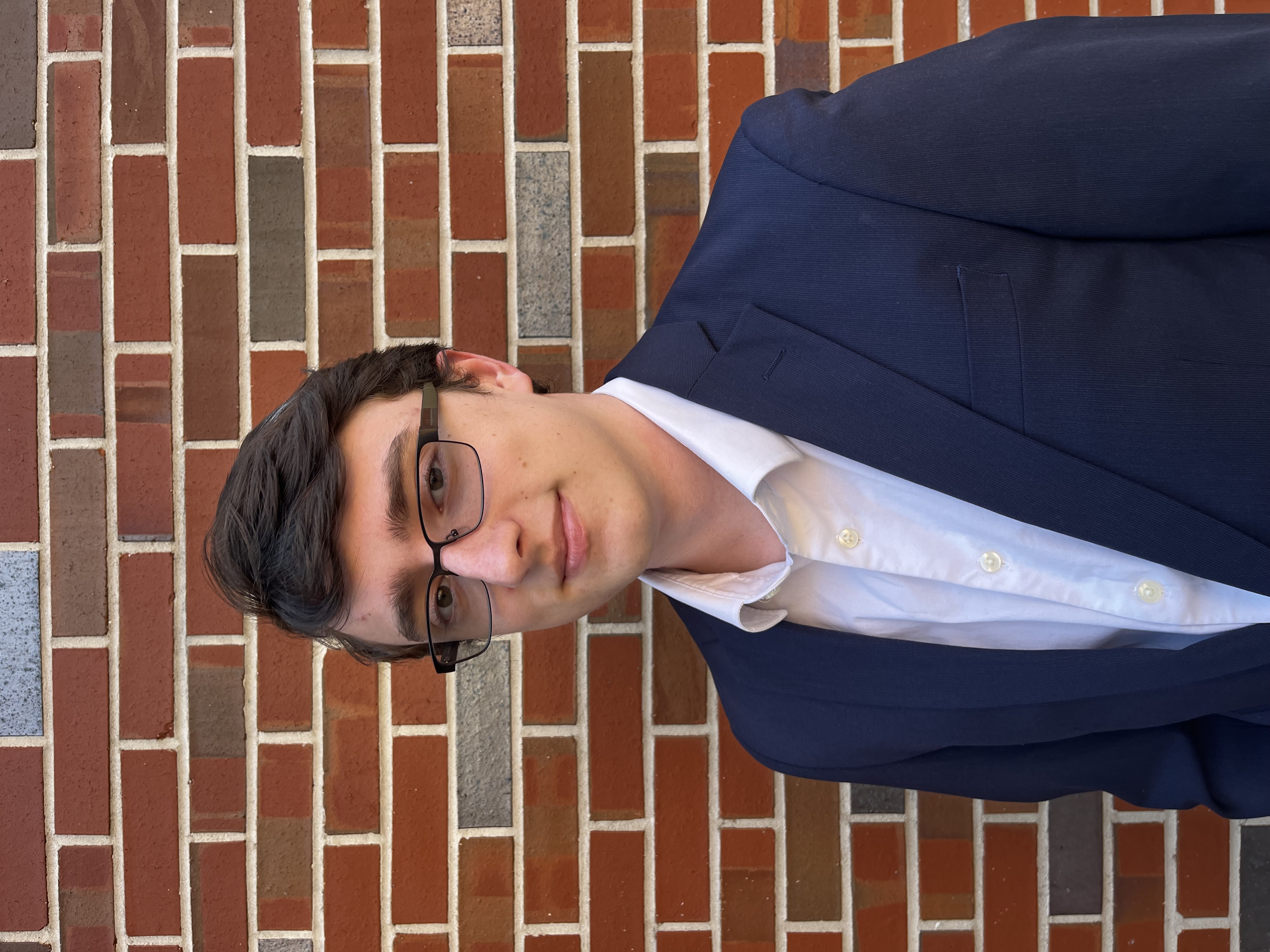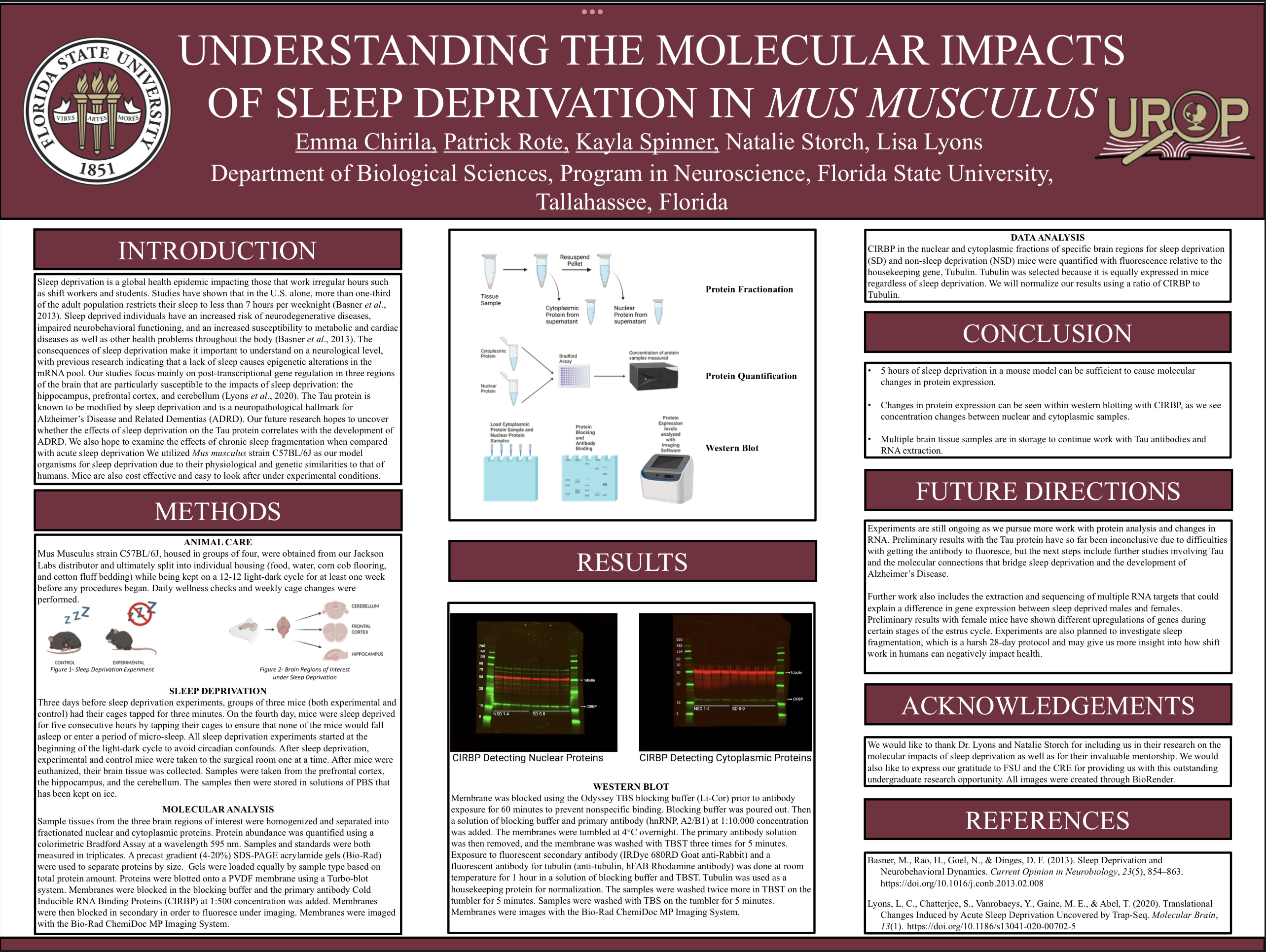Research Symposium
23rd annual Undergraduate Research Symposium, April 6, 2023
Patrick Rote Poster Session 1: 11:00 am - 12:00 pm/ Poster #84

BIO
My name is Patrick Rote and I am from Orlando, FL. I am currently pursuing a degree in Cell and Molecular Neuroscience as a first year at Florida State University. My overall research interests are sleep, memory, and cognition. Upon completion of my undergraduate degree, I plan on furthering my education through graduate level studies and eventually pursuing a career in healthcare.
Understanding the Molecular Impacts of Sleep Deprivation in Mus Musculus
Authors: Patrick Rote, Dr. Lisa LyonsStudent Major: Cell and Molecular Neuroscience
Mentor: Dr. Lisa Lyons
Mentor's Department: Biological Sciences Mentor's College: Arts & Sciences Co-Presenters: Kayla Spinner, Emma Chirila
Abstract
Sleep deprivation is a widespread health issue that has adverse effects on neurobehavioral and cognitive functions. This is an increasing problem in all facets of society as there is a growing tendency to prioritize work and education over health. Sleeplessness accounts for an increased risk of developing metabolic, cardiac, and neurodegenerative diseases along with other health problems throughout the body. The hippocampus, frontal cortex, and cerebellum are regions of the brain that are particularly susceptible to alterations in gene regulation. What makes these brain regions of particular interest under the conditions of sleep deprivation are the hippocampus’ regulation of spatial memory, the cerebellum’s control of motor functions, and the alteration of neural networks in the frontal cortex. Sleep deprivation results in changes in gene expression as well as post-transcriptional impacts leading to changes in protein expression. Of particular interest is the long-term effects of sleep deprivation with an increased risk of neurodegenerative diseases, particularly Alzheimer's Disease and Related Dementias. Our research seeks to investigate the effects of sleep deprivation on the Tau protein, a neuropathological hallmark for Alzheimer’s Disease. In order to model the effects of sleep deprivation on our target regions of the brain, Mus musculus were sleep deprived with a particular emphasis on preventing micro-sleeps and their brains were then extracted for molecular analysis. The hippocampus, cerebellum, and frontal cortex tissue samples were fractionated and quantified using western blots to gain insight into the different levels of protein expression due to sleep deprivation.
Keywords: Sleep, Sleep Deprivation, Mice, Molecular, Neuroscience

